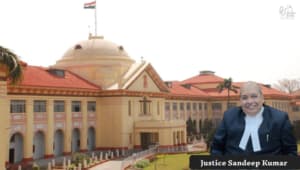The Supreme Court of India recently ruled that for an individual to claim employment within an organization, a direct master-servant relationship must be proven through written documentation. This case revolved around the Central Board of Secondary Education (CBSE) and an employee, Raj Kumar Mishra, who alleged wrongful termination.
A bench comprising Justice Ahsanuddin Amanullah and Justice Prashant Kumar Mishra emphasized that a direct employer-employee relationship cannot be assumed without concrete evidence.
"For a person to claim employment under any organization, a direct master-servant relationship has to be established on paper," the Court stated.
The Court rejected the argument that mere supervisory control over a worker suffices to prove an employer-employee relationship.
"Whatever material has been placed and even the best point argued by the learned Senior Counsel for the private respondents before this Court was that since there was supervisory and jurisdictional control over the private respondents by the appellants, ipso facto, they would become employees of the appellants. This argument is noted only to be rejected."
Case Background
The dispute arose when Raj Kumar Mishra, a Junior Assistant at CBSE, claimed that his services were unlawfully terminated through an oral order in 1999. Following unsuccessful conciliation proceedings, the case was referred to the Central Industrial Tribunal, Kanpur. The tribunal ruled in Mishra's favor, recognizing him as an employee and awarding him Rs. 1 lakh in compensation. However, reinstatement was not granted.
Mishra challenged this decision in the Allahabad High Court, arguing that reinstatement was necessary under Section 25(F) of the Industrial Disputes Act, 1947. The High Court found the tribunal’s decision arbitrary and remanded the matter to the Labour Court for further consideration.
CBSE contested the High Court’s order, asserting that Mishra was never its direct employee. The Board maintained that he was engaged through a labor supply contractor, M/s Manpower Security Services. CBSE presented bills from the contractor, listing Mishra as a worker and demonstrating that all payments were made to the contractor, not directly to Mishra.
Mishra, however, argued that CBSE exercised supervisory and jurisdictional control over his work, assigning various duties and transferring him across locations. His counsel contended that these factors indicated an employer-employee relationship, justifying the Labour Court’s compensation order.
Read Also:- Supreme Court Sets Legal Precedent on Acquittal of Innocent Bystanders in Group Clashes
The Supreme Court disagreed, underscoring the necessity of documented proof.
"This clearly, in the considered opinion of the Court, would not establish a master-servant relationship."
The Court stated that if there had been substantial evidence supporting Mishra’s claim of direct employment, it would not have interfered with the High Court's decision. However, since the primary defense lacked merit, the Court deemed a remand to the Labour Court unnecessary.
"Had it been the case where there were other materials in favor of the private respondents showing that they may have a case for being considered as employees of the appellants, we may not have interfered. However, when the best defense of the private respondents has been found to be of no consequence, a remand would be an exercise in futility."
Case No: SPECIAL LEAVE PETITION(CIVIL)NO. 19648 OF 2023
Case Title: Joint Secretary, Central Board Of Secondary Education vs Raj Kumar Mishra















